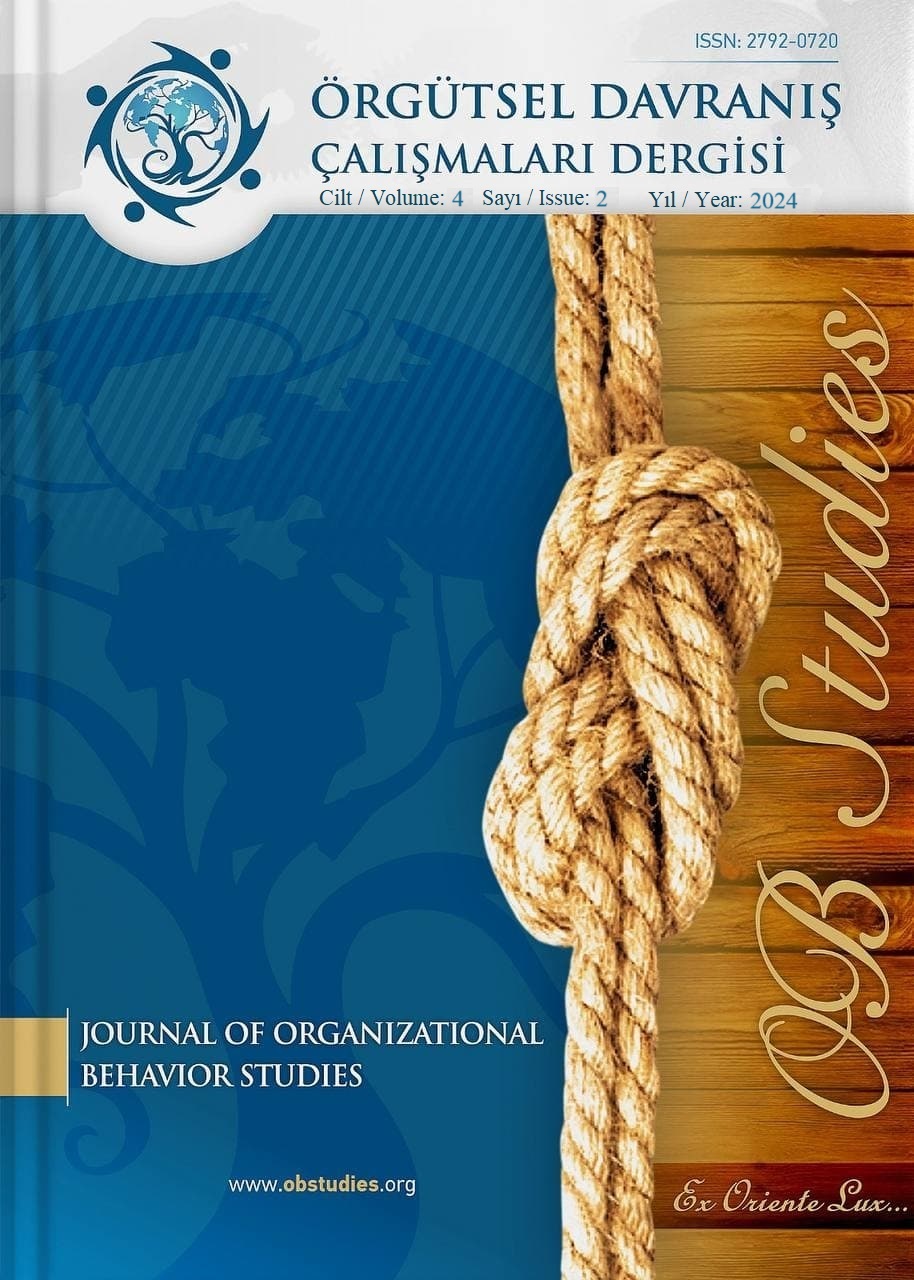Mobbing in micro businesses: A qualitative research in hairdresser and beauty salons in tokat province
Keywords:
Mobbing, Hairdressers and Beauty Salons, Micro BusinessesAbstract
It is a scientific reality supported by research results that women are exposed to mobbing practices more than male employees. This study was conducted on hairdressers, beauty salons, and micro businesses where women are proportionally dominant. In the study conducted using qualitative research methods, in-depth interviews were conducted with employees working in Hairdressers and Beauty Salons located in the Tokat district center, the causes and consequences of mobbing were determined, and what could be done to prevent it was discussed. The questions prepared from the literature review were directed to 11 master trainer salon operators. Open-ended questions and semi-structured interview techniques were used in the interviews, which were transcribed using the voice recording method. The findings obtained were categorized and presented in tables. As a result of the research, it was determined which terms master trainers defined mobbing, that mobbing was experienced intensely in the hairdresser and beauty sector, that female managers applied mobbing to female employees more, the types and reasons of exposure to mobbing, and that the type of mobbing was used more from top to bottom. At the end of the research, necessary suggestions were made regarding the practices and regulations that should be made to prevent mobbing.
References
Altuntaş, C. (2010). Mobbing kavramı ve örnekleri üzerine uygulamalı bir çalışma. Journal of Yaşar University, 5(18), 2995–3015. https://doi.org/10.19168/jyu.47309
Baltacı, A. (2018). Nitel araştırmalarda örnekleme yöntemleri ve örnek hacmi sorunsalı üzerine kavramsal bir inceleme. Bitlis Eren Üniversitesi Sosyal Bilimler Enstitüsü Dergisi, 7(1), 231–274.
Bıçakçı, O. (2022). Türkiye’de madencilik sektöründe mobbing uygulamaları üzerine nitel bir çalışma (Yüksek lisans tezi, Bahçeşehir Üniversitesi Lisansüstü Eğitim Enstitüsü). Yüksek Öğretim Kurulu Başkanlığı Tez Merkezi. https://tez.yok.gov.tr/UlusalTezMerkezi/giris.jsp
Er, N. T. (2024). Örgütlerde güncel bir sorun olan mobbing psikolojik taciz: Mobbing. Socrates Journal of Interdisciplinary Social Studies, 10(38), 35–50. https://doi.org/10.5281/zenodo.10655417
Güngör, M. (2008). Çalışma hayatında psikolojik taciz. İstanbul: Derin Yayınları.
Karacil, M. (2024). Mobbingin birey üzerindeki etkileri: Bir derleme çalışma. Meyad Akademi, 5(1), 75–96. https://doi.org/10.59007/meyadakademi.1464671
Kırel, Ç. (2008). Örgütlerde psikolojik taciz (mobbing) ve yönetimi. Eskişehir: Anadolu Üniversitesi Yayınları.https://library.ciu.edu.tr/cgi-bin/koha/opac-detail.pl?biblionumber=35392
Köse, H. (2006). Örgüt içi iletişimde negatif bir olgu: Psikolojik yıldırma ve sistemli bir ‘ötekileştirme’ süreci olarak mobbing. II. Ulusal Halkla İlişkiler Sempozyumu, 281–292.
Leymann, H. (1990). Mobbing and psychological terror at workplaces. Violence and Victims, 5(2), 119–126. https://doi.org/10.1891/0886-6708.5.2.119
Millî Eğitim Bakanlığı. (2011). Kuaförlüğün tarihsel gelişimi modülü. Ankara: MEGEP Bülten.
Sadıkoğlu, H. (2021). Çalışan kadınlar arasında yaşanan mobbing: İstanbul güzellik merkezlerinde bir araştırma (Yüksek lisans tezi, Çanakkale Onsekiz Mart Üniversitesi). Yüksek Öğretim Kurulu Başkanlığı Tez Merkezi. https://tez.yok.gov.tr/UlusalTezMerkezi/giris.jsp
Sığrı, Ü. (2021). Nitel araştırma yöntemleri. İstanbul: Beta Basım Yayınevi.
Solmuş, T. (2005). İş yaşamında travmalar: Cinsel taciz ve duygusal zorbalık/taciz (mobbing). İŞ GÜÇ The Journal of Industrial Relations and Human Resources, 7(2), 1-14.
Solmuş, T. (2008). İş ve özel yaşama psikolojik bakışlar. İstanbul: Epsilon Yayıncılık.
Durmuş, Y. (2024). Ortaokul öğretmenlerinin ifadeleriyle mobbingin gündelik yaşama etkileri. Araştırma ve Deneyim Dergisi, 9(1), 37–48. https://doi.org/10.47214/adeder.1487218
Tınaz, P. (2008). İşyerinde psikolojik taciz (mobbing) (2nd ed.). İstanbul: Beta Yayıncılık.
Uzunçarşılı, Ü. & Yoloğlu, N. (2007). Mobbing/iş yerinde duygusal taciz: Ulusal ve uluslararası boyutu ile çatışma yüklü bir iletişim biçimi. Öneri Dergisi, 7(27), 1–8.
Yalçı, E. B., & Erduran, G. Y. (2024). Çalışma hayatındaki mühendislerin mobbing ve toplumsal cinsiyet algısı ölçeklerine göre incelenmesi. Akademik Hassasiyetler, 11(24), 476–499. https://doi.org/10.58884/akademik-hassasiyetler.1400665
Yılmaz, D. (2024). Çocukluk aşılarını reddedenlerle ilgili sağlık çalışanlarının ikna stratejileri: Dini etkilerin nitel bir incelemesi. Community & Physician/Toplum ve Hekim, 39(4).
Yücetürk, E. & Öke, M. K. (2005). Mobbing and bullying: Legal aspects related to workplace bullying in Turkey. South-East Europe Review, 2(1), 61–70.

Downloads
Published
How to Cite
Issue
Section
License
Copyright (c) 2024 Journal of Organizational Behavior Studies

This work is licensed under a Creative Commons Attribution-NonCommercial-NoDerivatives 4.0 International License.
Accepted 2024-12-10
Published 2024-12-31




